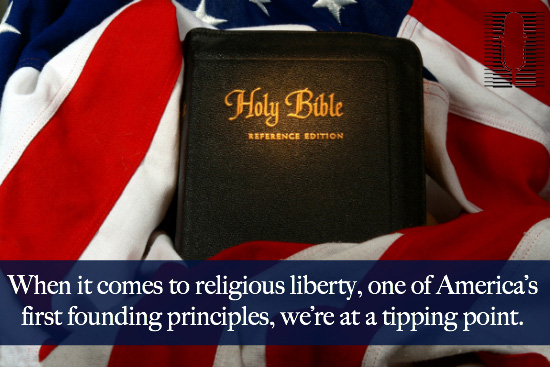The top lawyer for the U.S. government had to answer a question he probably would have preferred not to tackle during oral arguments before the U.S. Supreme Court in Obergefell vs. Hodges, the marriage case.
Justice Samuel Alito asked the Obama Administration’s Solicitor General, Donald Verrilli a question about how the religious liberty of religious schools that oppose same-sex marriage might be affected if the Court rules that same-sex marriage is a civil right. Justice Alito brought up a case that came before the court in 1983, Bob Jones University vs. United States. Here’s the exchange:
Justice Alito asked:
“in the Bob Jones case, the Court held that a college was not entitled to tax
exempt status if it opposed interracial marriage or interracial dating. So
would the same apply to a university or a college if it opposed same sex marriage?”
Mr. Verrilli, the Solicitor General replied:
“You know, I…I don’t think I can answer that question without knowing more specifics, but it’s certainly going to be an issue. I…I don’t deny that, Justice
Alito. It is…it is going to be an issue.” (bolding mine)
For an organization’s tax exempt status to be revoked means it would no longer be exempt from federal income tax and is not eligible to receive tax-deductible contributions. Many, probably most schools would not survive that.
General Verrilli’s answer was: yes, religious schools that oppose same sex marriage in their policies and teachings will have their tax-exempt status challenged and be likely to lose it if same sex marriage becomes the law of the land.
What about other organizations that hold to orthodox Christian beliefs? Like churches? Will churches be subject to loss of tax exempt status if every state is forced to perform, or even recognize, same sex marriages?
Another Justice, Antonin Scalia, asked during oral arguments, “Is it conceivable that a minister who is authorized by the state to conduct marriage can decline to marry two men if indeed this court holds that they have a constitutional right to marry?” Then he said, “I don’t see how.”
Kelly Shackelford of Liberty Institute says, if we get a bad ruling later this month, religious liberty will come under severe attack. It’s begun with wedding vendors. Other faith-based businesses will have hiring practices and rights to operate according to their religious beliefs challenged. Christian colleges’ and schools’ accreditation will come under fire. Governments will attempt to force faith-based adoption and foster care providers to place children with homosexual couples. Licensing for many professions will depend upon acceptance of the gay agenda. And employees at every level of government and in the military, as well as federal contractors will be penalized or punished if they do not toe the line that the right to same-sex marriage trumps religious liberty.
When it comes to religious liberty, one of America’s first founding principles, we’re at a tipping point.
 Listen Online
Listen Online Watch Online
Watch Online Find a Station in Your Area
Find a Station in Your Area











 Listen Now
Listen Now Watch Online
Watch Online
